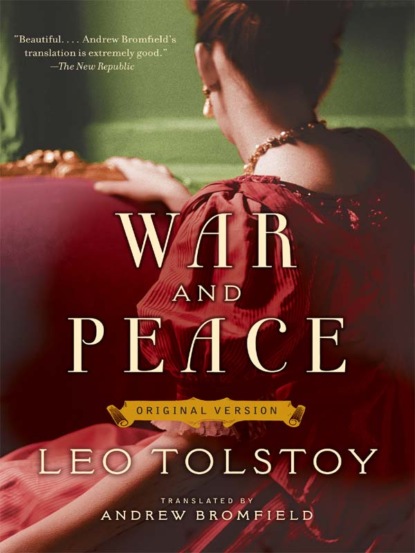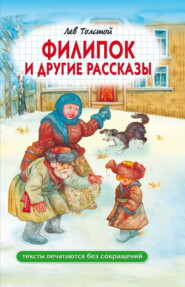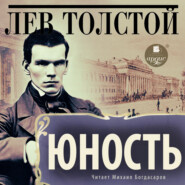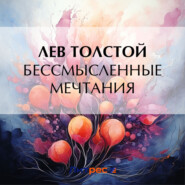По всем вопросам обращайтесь на: info@litportal.ru
(©) 2003-2025.
✖
War and Peace: Original Version
Автор
Год написания книги
2019
Настройки чтения
Размер шрифта
Высота строк
Поля
“Dear countess, how long it has been … she has had to stay in bed, the poor child … at the ball at the Razumovskys … and Countess Apraksina … I was so glad.”
The sound of lively women’s voices interrupting each other mingled with the sound of dresses rustling and chairs being drawn up. There began one of those conversations which are initiated precisely in order that, at the first pause, one may rise, rustle one’s dress, and say: “I am so delighted! Mama and Countess Apraksina wish you good health …” – and, rustling one’s dress yet again, proceed to the hallway, put on one’s fur coat or cloak and depart.
The conversation turned to the most important news in town at the time, the illness of a famous, rich and handsome man of Empress Catherine’s day, the old Count Bezukhov, and his illegitimate son Pierre, who had behaved so improperly at Anna Pavlovna Scherer’s soirée.
“I feel awfully sorry for the poor count,” said the guest, “his health was bad enough already, and now comes this distress from his son. It will be the death of him!”
“What’s that?” asked the countess, as though she did not know what her guest was talking about, despite having already heard the reason for Count Bezukhov’s distress at least fifteen times.
“That’s modern-day education for you! While he was abroad,” the guest continued, “this young man was left to his own devices and now they’re saying in St. Petersburg that he has done such terrible things, he has been banished here with a police escort.”
“Well, I never!” said the countess.
“He chose his friends badly,” Princess Anna Mikhailovna interjected. “They say that he and Prince Vasily’s son, and a certain Dolokhov, got up to God only knows what. And they have both suffered for it. Dolokhov has been reduced to the ranks and Bezukhov’s son has been banished to Moscow. As for Anatole Kuragin – his father hushed things up somehow. He managed to stay in the Horse Guards regiment.”
“But what can they have done?” asked the countess.
“They are absolute bandits, especially Dolokhov,” said the guest. “He is the son of Marya Ivanovna Dolokhova, such a respectable lady, but what of it? Can you imagine, the three of them got hold of a bear from somewhere and took it off with them in a carriage to see some actresses? The police came running to calm them down, and they caught the local policeman, tied him back to back with the bear and threw the bear into the Moika river; the bear was swimming along with the policeman on top of it.”
“A fine figure of a policeman, ma chère,” the count exclaimed, splitting his sides laughing, with an air of approval which suggested that, in spite of his age, he would not have minded taking part in such fun and games.
“Oh, how terrible! What is there to laugh at, count?”
But the ladies laughed too, despite themselves.
“They barely managed to rescue the unfortunate man,” the guest continued. “And that is the clever way in which the son of Count Kirill Vladimirovich Bezukhov amuses himself!” she added. “And they said he was so well brought-up and intelligent. This is what all that foreign upbringing has led to. I hope no one here will receive him, despite his wealth. They wanted to introduce him to me. I positively refused: I have daughters.”
“But this is a quite excellent prank, ma chère. Good for them!” said the count, making no attempt to restrain his laughter.
The guest looked at him in prim annoyance.
“Ah, ma chère Marya Lvovna,” he said in his badly pronounced poor French, “youth must sow its wild oats. Really and truly!” he added. “Your husband and I were no saints either. We had our little peccadilloes too.”
He winked at her; the guest did not reply.
“Why do you say that this young man is so rich?” asked the countess, leaning away from the girls, who immediately pretended not to be listening. “Surely he only has illegitimate children. And I think … Pierre is also illegitimate.”
The guest gestured vaguely.
“He has twenty illegitimate children, I believe.”
Princess Anna Mikhailovna intervened in the conversation, clearly wishing to demonstrate her connections and her knowledge of all the affairs of high society.
“That is the point,” she said significantly, and also in a half-whisper. “Count Kirill Vladimirovich’s reputation is well known … He has lost count of his children, but this Pierre was his favourite.”
“What a fine man he was,” said the countess, “only last year! I never laid eyes on a more handsome man.”
“He is greatly changed now,” said Princess Anna Mikhailovna. “What I wanted to say,” she continued, “is that on his wife’s side, the direct heir to the entire estate is Prince Vasily, but Pierre was greatly loved by his father, who provided for his education and wrote to His Majesty … So no one knows, if he dies (and he is in such a bad way that it is expected any minute, and Lorrain has come from St. Petersburg), who will get this immense fortune, Pierre or Prince Vasily. Forty thousand souls and millions upon millions. I know this so well, because Prince Vasily told me himself. And Kirill Vladimirovich is a third cousin of mine on my mother’s side, and he was Borya’s godfather,” she added, as though she attached no importance whatever to that circumstance.
“Prince Vasily arrived in Moscow yesterday. He is going for some audit, I am told,” said the guest.
“Yes, but between you and me,” said the princess, “that is a mere pretext: he has actually come to see Count Kirill Vladimirovich after hearing that he is in such a bad way.”
“Nonetheless, ma chère, it was an excellent prank,” said the count and then, noticing that the senior guest was not listening to him, he turned to the young ladies. “That policeman cut a fine figure, I imagine.”
And demonstrating the policeman waving his arms, he began laughing again with that resonant bass laughter that shook his entire plump body, the way people laugh who always eat and, especially, drink well.
XIV
Silence fell. The countess looked at her guest with a polite smile, but without disguising the fact that she would now be not in the least offended if her guest were to get up and leave. The guest’s daughter was already adjusting her dress and glancing enquiringly at her mother, when suddenly from the next room there was the sound of several male and female feet running towards the door, the clatter of a stool dragged and overturned, and a thirteen-year-old girl with the skirt of her short muslin frock oddly tucked up came bursting into the room and stopped in the middle. She seemed to have misjudged her speed and galloped so far in by accident. That very same moment four figures appeared in the doorway: two young men – one a student with a crimson collar, the other a Guards officer – a fifteen-year-old girl and a fat, ruddy-cheeked boy in a child’s smock.
The count leapt up and, swaying on his feet, spread his arms wide around the girl who had run in.
“Ah, there she is!” he cried, laughing. “The name-day girl! Ma chère name-day girl!”
“My dear, there is a time for everything,” the countess said to her daughter, obviously merely in order to say something, because it was clear at a glance that her daughter was not the least bit afraid of her. “You’re always spoiling her,” she added, speaking to her husband.
“Hello, my dear, happy name-day to you,” said the guest. “What a charming child!” she added, addressing her flattery to the mother.
The black-eyed, large-mouthed and plain but lively little girl, with her childish, exposed little shoulders heaving and contracting in their bodice after the fast run, with her tangle of black curls swept backwards, thin little bare arms and fast little legs in little lacy pantaloons and little open shoes, was at that sweet age when the little girl is no longer a child, but the child is not yet a young woman. Twisting away from her father, quick and graceful and evidently unused to the drawing room, she ran across to her mother and, paying no attention to her rebuke, hid her flushed little face in the lacework of her mother’s mantilla and burst into laughter.
“Mama! We wanted to marry Boris … Ha, ha!… To the doll … Ha, ha! Yes … Ah … Mimi …” she said through her laughter. “And … Ah … He ran away.”
She pulled a large doll out from under her skirt and showed it to them: a black, broken-off nose, a cracked cardboard head and kidskin bottom, legs and arms that dangled loosely at the elbows and knees, but still with a fresh, elegant, carmine smile and thick-black, arching brows.
The countess had been acquainted for four years with this Mimi, Natasha’s inseparable friend, a gift from her godfather.
“You see?” And Natasha could not say any more (everything seemed funny to her). She fell down onto her mother and broke into such loud, resounding laughter that everybody, even the prim and proper guest, began laughing in spite of themselves. This laughter could even be heard in the footman’s room. The countess’s menservants exchanged smiling glances with the visiting liveried footman, who had been sitting glumly on his chair all the while.
“Now, off with you, you and your monster!” said the little girl’s mother, pushing her daughter away in feigned anger. “This is my youngest, a spoilt little girl, as you can see,” she said to the guest.
Tearing her little face away for a moment from her mother’s lacy shawl and glancing up at her, Natasha said quietly through her tears of laughter:
“I feel so embarrassed, mama!” And quick as could be, as if she were afraid of being caught, she hid her face again.
The guest, obliged to admire the family scene, felt it necessary to take some kind of part in it.
“Tell me, my dear,” she said, addressing Natasha, “who is this Mimi to you? Your daughter, I suppose?”
Natasha did not like this guest and the tone in which she condescended to make conversation with a child.
“No, madame, she’s not my daughter, she’s a doll,” she said, smiling boldly, got up off her mother and sat down beside her eldest sister, demonstrating in this way that she could behave like a big girl.
Meanwhile the entire young generation (Boris the officer, Anna Mikhailovna’s son; Nikolai the student, the count’s eldest son; Sonya, the count’s fifteen-year-old niece; and little Petrushka, the youngest son) had all distributed themselves round the drawing room as if they had suddenly been dropped into cold water and were clearly struggling to restrain within the limits of decorum the excitement and merriment that were still glowing in every feature of their faces. It was plain to see that out there, in the back rooms from which they had come running in so impetuously, their conversations had been more fun than the talk here of town scandals, the weather and Countess Apraksina.
The two young men, student and officer, were childhood friends, both the same age and both handsome, although they were quite unalike. Boris, a tall, fair-haired youth, had a long face with fine, regular features. A calm and thoughtful mind was expressed in his pleasant grey eyes, but in the corners of his still hairless lips there lurked a constantly mocking and slightly cunning smile, which instead of spoiling his expression, seemed in fact to add spice to his fresh, handsome face that was so obviously still untouched by either vice or grief. Nikolai was not very tall, with a broad chest and a very subtle, fine figure. His open face, with soft, wavy, light-brown hair surrounding a prominent, broad forehead, and the ecstatic gaze of his half-closed, prominent brown eyes, always expressed the impression of the moment. Little black hairs had already appeared on his upper lip, and impetuosity and enthusiasm were expressed in his every feature. Both young men bowed and took seats in the drawing room. Boris did this fluently and easily; Nikolai, on the contrary, with almost childish resentment. Nikolai glanced by turns at the guests and the door, evidently with no desire to conceal the fact that he was bored, and hardly even answered the questions put to him by the guests. Boris, on the contrary, immediately found the right tone and informed them with mock gravity that he had known this Mimi doll as a young girl when her nose was still perfect, that she had aged a lot in the five years he had known her, what with her head splitting open right across the skull. Then he enquired after the lady’s health. Everything he said was simple and decorous, neither too witty nor too foolish, but the smile playing about his lips indicated that even as he spoke he did not ascribe the slightest importance to his own words and was speaking purely out of a sense of decorum.
“Mama, what is he speaking like a grown-up for? I don’t want him to,” said Natasha, going up to her mother and pointing at Boris like a capricious child. Boris smiled at her.

















